Comps Insider: A production about hot dogs, masculinity, and friendship
Tosh Le ’24 and Collin Preves ’24 talk about their joint theater comps project: The Hot Dog Play.
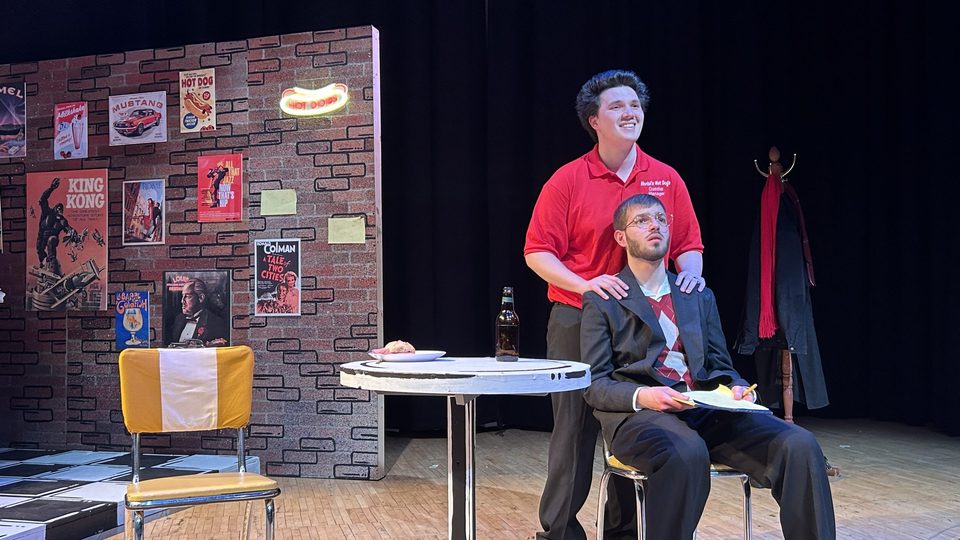
On April 4, 2024, The Hot Dog Play opened and ran in the Weitz Theater until Saturday evening, April 6. It featured only two actors, but the work of over 30 people behind the scenes. As a production, it was also the culmination of two seniors’ work at Carleton: the actors, Tosh Le ’24 and Collin Preves ’24.
The production itself had a set featuring the corner of Morisi’s Hot Dogs, a small chain joint in Chicago. Posters from famous movies and music events plastered the walls, and the floor was painted in a classic black-and-white checkered pattern. At the front of the stage was a small table with a sandwich on it. Le and Preves utilized the entirety of the small space throughout their 90-minute performance.
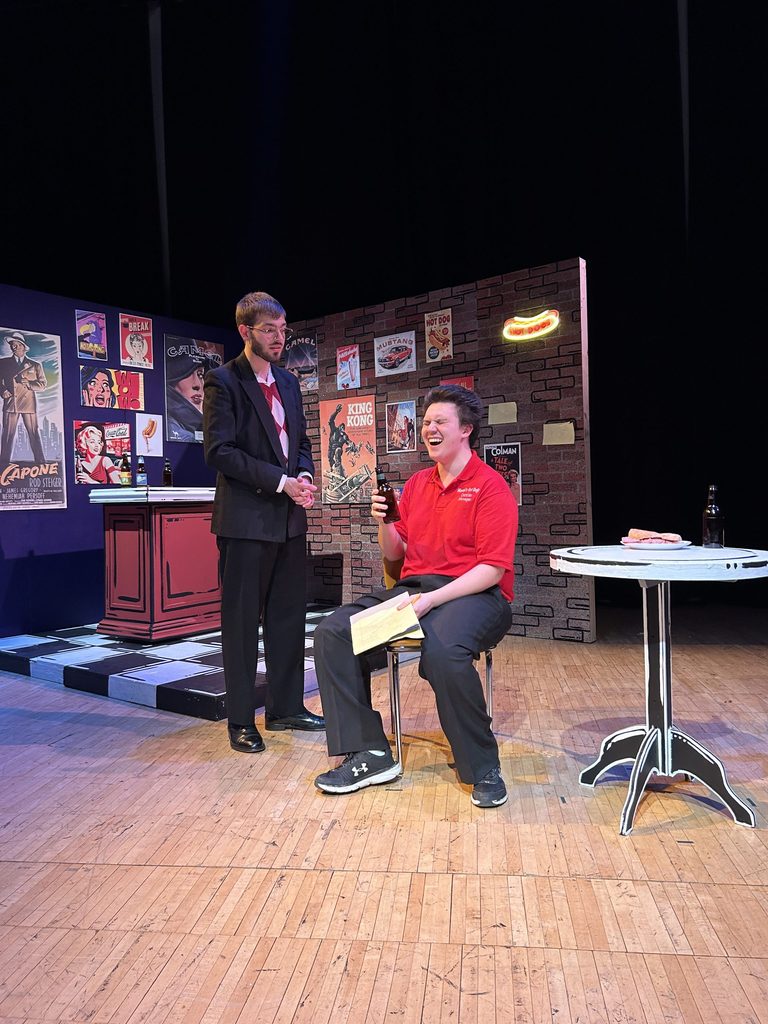
Both Le and Preves are double majors, with Le studying physics and theater arts and Preves studying English and theater arts. This comps was a collaborative project to present their work as theater majors.
On why he took on such a hefty double major, Le said, “I’ve always been acting… and I think around my first year, I fell in love with the theater department.” He described the department as a community that he wanted to engage with deeply, though he’d initially thought to do a minor instead.
“I plan to go to grad school for physics,” Le said, “and I acknowledge that if I do that, I won’t have as many experiences to dig into the theatrical world.”
Understanding that he would have to “meticulously plan out courses,” Le ultimately decided that a double major felt right for him. “I don’t think I’ve regretted it at all,” he said. “I’ve found myself falling more and more in love with theater — the people who joined and the people who’ve left.”
Le describes his double major as “an opportunity to stretch or flex both my creative muscles and my analytical muscles… I really love that.”
When I conducted this interview, Le’s physics comps was due within the next hour, and Le and Preves were “in the throes of rehearsal,” though both joked and laughed throughout the conversation. “Life’s good,” Preves said, “can’t complain too much.”
On his own academic path, Preves recalls loving theater since he was much younger and wanting to be a professional actor. Though he added that after learning about the business, he “kinda rethought that.” He still took courses in the theory and practice of theater during his first two years at Carleton, but decided that he also needed a second, “more practical” major.
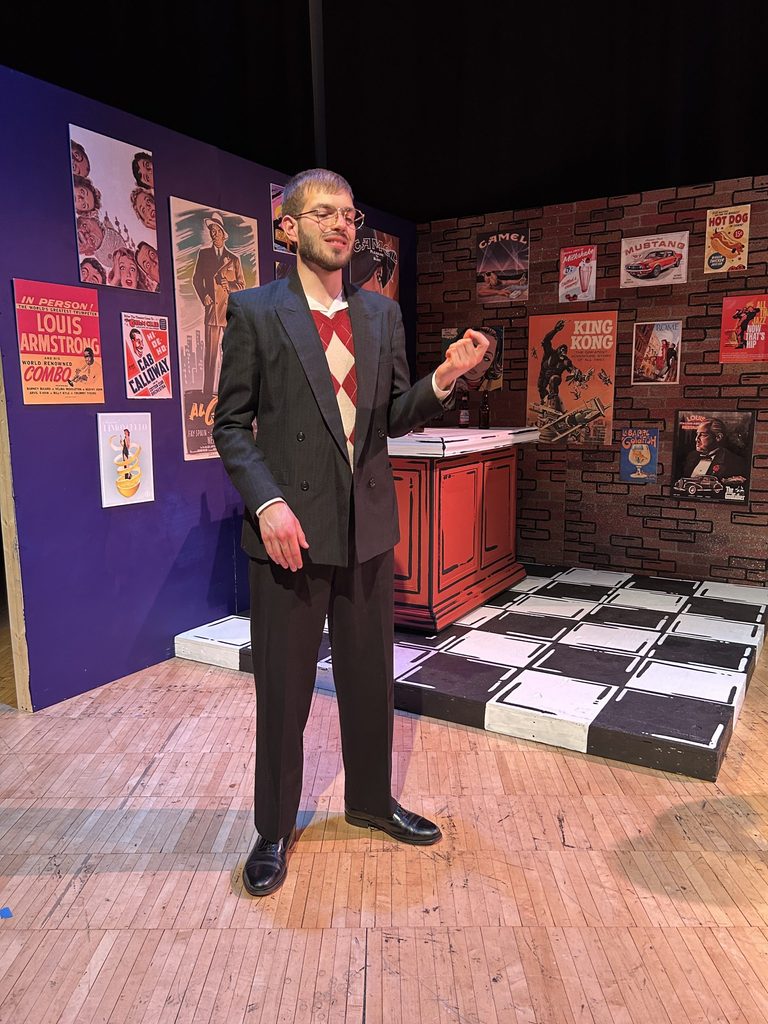
“The obvious conclusion was English, which I realize now isn’t as big of a shoo-in as I thought,” he laughed, “though the two ended up being really well connected. My real passion is in analyzing media, especially when it comes to character. How characters think, how they’re constructed, how they interact with the world and one another, and what they have to teach us and how their experiences can reflect our own.” Preves describes the relationship between a character and oneself as a large component of acting.
The script of The Hot Dog Play was the work of Preves, who wrote it for his English comps the previous term. The play is an exploration of character work — motivations, relationships, and actions. After the English comps was submitted, Le and Preves realized that it could work for their theater comps as well, showcasing everything they’d learned as theater majors by producing and starring in a completely original play.
On the collaborative nature of putting the project together, Le said that the theater comps “involves the most people not normally associated with the theater department. As a pure example, we have a director, a set designer, a lighting designer, a sound designer, a costume designer,” and many technicians who construct and deconstruct all aspects of the production, “most of whom aren’t theater majors.”
Preves added that when he had been writing the script, he thought ahead to the staging and decided upon something “minimalist” for a “two-man show.”
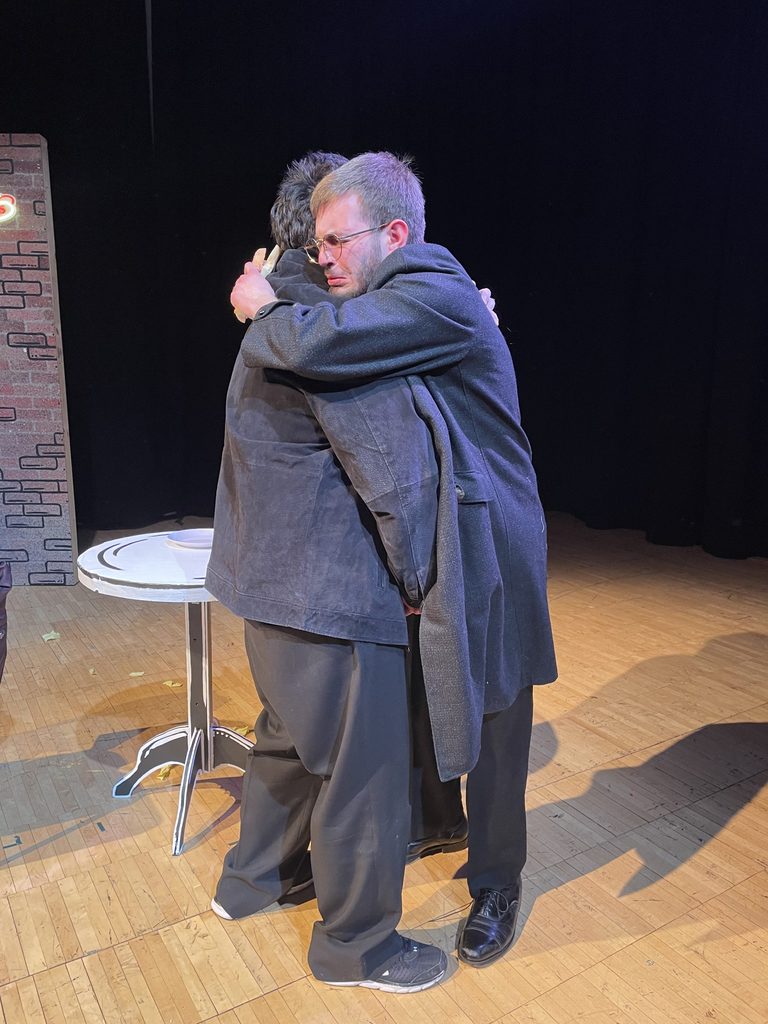
“The play itself has no moving set pieces, it’s just the two of us, but even then it’s still a massive undertaking, both for ourselves and everyone else involved,” Preves said. “As it turns out, don’t believe what they tell you about minimalism. Everything is maximalist if you put your heart and soul into it.”
During readings and rehearsals, Le caught himself and director Skye Sparks ’25 analyzing lines with the thought of “author’s intention” in mind. That was interesting to grapple with, he said, considering the author is his peer and close friend.
“From the perspective of the playwright, who knows the intention of every line of prose,” said Preves, “sometimes [Sparks] would come up with this absolutely wild reading that feels more correct than the thing I wrote.”
At one point, Sparks said that she thought Preves’ character, Louis, was lying, something he had never considered before, but took on in the acting process. “It really requires a second, third, fourth pair of eyes to give a piece its summative flesh,” Preves said.
A significant change Le and Preves took on in the theatrical process of their comps was switching roles. The play is about two men, Cruncher and Louis — best friends from childhood estranged by fifteen years apart, whose lives have gone in radically different directions. Initially, Le was to play Louis while Preves was Cruncher. Once they read through the play, however, Sparks asked each of them to read the other’s lines and decided they should switch. Preves said that now it seemed “almost insane” that they had ever considered doing it the other way.
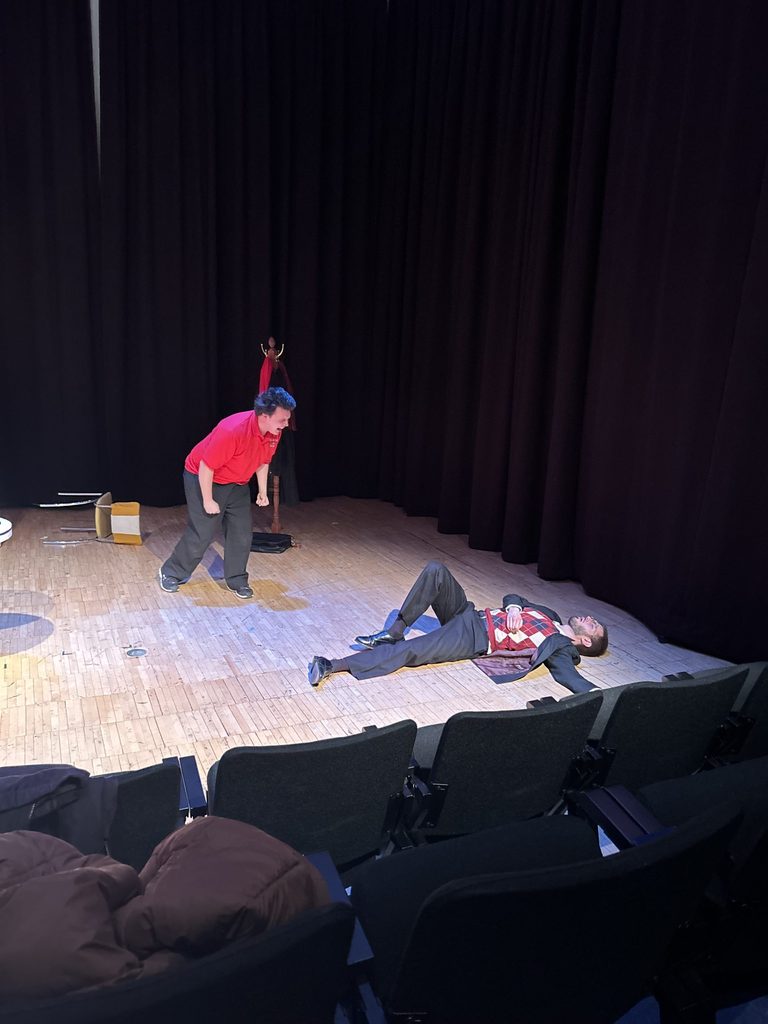
In the play, Louis is a successful author and Cruncher is the manager of Morisi’s Hot Dogs. They come together at the start of the play after Louis runs into writer’s block and is looking for inspiration in his childhood best friend. He soon begins to take unflattering notes about Cruncher’s character, though, and fights rooted in masculinity and dishonesty ensue. Both characters say regrettable things to the other, and at one point, both are left crying in a puddle on the floor. It takes screaming matches and swearing for them to sit in front of each other, vulnerable, and come to terms with themselves as similarly imperfect people. Ultimately, The Hot Dog Play is a testament to relationships — the best and the worst parts of them.
Preves describes the play as “strange” (in a good way) and that “it’s a lot of fun.” Le added that the process was “very intimate” with just him, Preves, Sparks, stage managers Grace Liang ’27 and Caroline Stanton ’27, and comps adviser David Wiles, associate professor of theater, working through lines and staging. “It’s radically different from most other rehearsal processes,” which feature many scenes and multiple characters at a time. In The Hot Dog Play, there are no scenes and the two actors stay on stage for the entirety of the play’s run.
“It has been an absolute joy working with Tosh,” Preves said. “He has kept me sane these past few weeks… I couldn’t imagine a better co-star.”